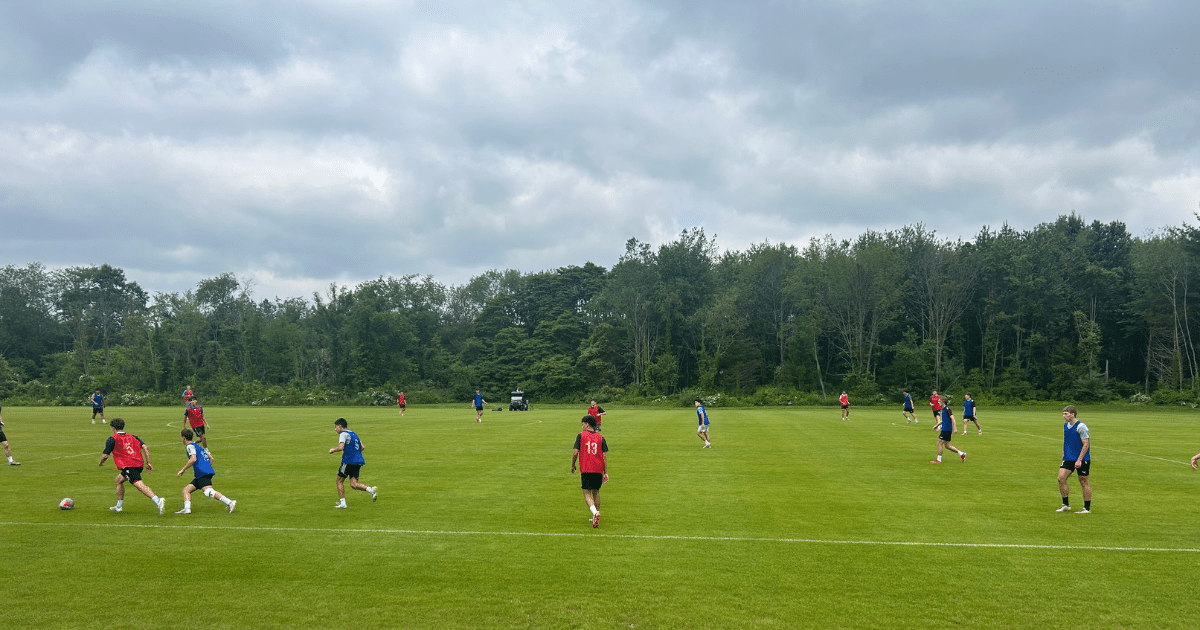6 Signs It’s Time to Finally Switch Soccer Clubs

Chaning clubs should not be taken lightly. There’s a lot of factors that should go into it. Please don’t be one of those “club hoppers”; it’s only doing a disservice to the kids.
Quick Summary:
- Watch for warning signs like unorganized practices, constant coach changes, and poor communication from club leadership
- A toxic environment with favoritism or negative sideline behavior can hurt your child’s love for the game
- Trust your gut—if your player is unhappy or not developing skills, a new club could reignite their passion
Choosing the right soccer club feels like a big commitment. You’ve paid the hefty fees, bought the gear, and blocked out your weekends for tournaments. But what happens when that exciting season turns into frustration?
Sometimes staying loyal to a club isn’t helping your young player grow. Here are six clear signs that it might be time to look for a better fit.
1. Training Feels More Like Recess Than Real Practice
Good soccer training should challenge your child. They should be learning new skills, understanding game strategy, and getting better each week.
If practices look more like unorganized scrimmages or kids just standing around, that’s a problem. Your child needs coaches who plan structured sessions with clear goals. When training feels like expensive babysitting, your player isn’t getting what they paid for.
Quality clubs follow a curriculum that builds skills step by step, season after season. If you can’t see what your child is supposed to be learning, neither can they.
2. The Coaching Carousel Never Stops
Has your team had three different coaches in two years? Constant turnover creates chaos.
Every new coach means learning a new system, new expectations, and new playing styles. Just when your child starts to understand one coach’s approach, someone new arrives and everything changes. This instability makes it nearly impossible for players to develop consistency in their game.
Clubs with high coaching turnover often have deeper problems—like poor management or low pay that drives good coaches away. If not yours, you’ve probably seen it at other clubs.
3. You’re Always Guessing What Comes Next
Does your club send schedule updates the night before games? Do you find out about important changes through parent gossip instead of official messages?
Poor communication is more than just annoying—it’s disrespectful to families who are investing time and money. Well-run clubs understand that parents need advance notice for tournaments, schedule changes, and team expectations. If you’re constantly scrambling because information arrives late or not at all, the club isn’t valuing your commitment.
Good communication is a sign of good leadership. Clubs that can’t send a simple email on time probably struggle with bigger organizational issues too. Yes, this is coach-dependent too, but the clubs should hold them responsible for timely communication.
4. The Sidelines Feel Like a War Zone
Youth soccer should be positive and encouraging. If it’s not, something’s wrong.
Watch how coaches and parents act during games. Are coaches screaming at kids for mistakes? Do parents argue with referees or trash-talk other families? Is there obvious favoritism where certain players get special treatment regardless of effort or ability?
A toxic environment kills confidence and ruins the joy of playing. Your child should feel supported, not stressed. When politics and negativity take over, even talented players stop improving because they’re too worried about doing something wrong.
5. There’s Nowhere to Go From Here
Every player develops at their own pace, but they all need opportunities to grow.
If your club doesn’t offer pathways to higher competition—like ECNL, MLS NEXT, Girls Academy, or quality showcase events—your child might hit a ceiling. Players need to challenge themselves against better competition to improve.
Ask yourself: Does this club have a clear pathway? Good connections to local college coaches? Do they help players move up to more competitive teams? Is there a clear plan for development beyond just staying on the same team year after year?
Without these opportunities, ambitious players eventually outgrow their club.
The longer you weight, the more opportunities you miss elsewhere.
6. Your Child Has Lost Their Spark
This is the most important sign of all.
Does your child complain about going to practice? Do they seem anxious or sad about soccer when they used to be excited? Have they mentioned feeling ignored or left out by their coach or teammates?
Soccer should be challenging, but it should also be fun. If your player has lost their love for the game because of their current club, that’s a red flag you can’t ignore. No trophy or league title is worth watching your child become miserable.
Sometimes kids go through temporary rough patches—that’s normal. But if the unhappiness lasts for months and is clearly connected to the club environment, trust what your child is telling you.
A tell-tale sign is if they are quieter on their way to weekly practice sessions. I’ve experienced this firsthand with my son’s teammate. He was always an outgoing kid, but he was abnormally quiet when I brought him to practice. This went on for three straight weeks. Then, he quit club soccer.
Making the Move
Switching clubs isn’t giving up—it’s advocating for your child’s development and happiness. Many players thrive after finding a club that better matches their personality, skill level, and goals.
Before making a change, visit potential new clubs. Watch their practices and games. Talk to other parents. Ask about coaching philosophy and player development plans. Stalk their social media. The right club will feel different from the start—more organized, more positive, and more focused on helping every player improve.
Your child deserves a soccer experience that challenges them, supports them, and keeps their love for the game alive. If your current club isn’t providing that, it’s okay to look for something better.
Life is too short to be stuck playing for a team your child doesn’t like.

Written By: SoccerNovo
SoccerNovo is an independent youth soccer media brand built to help parents, players, and coaches better understand the game and the pathways available in U.S. soccer. Our mission is to make youth soccer simpler, clearer, and more accessible for everyone involved in it.
Let’s connect






